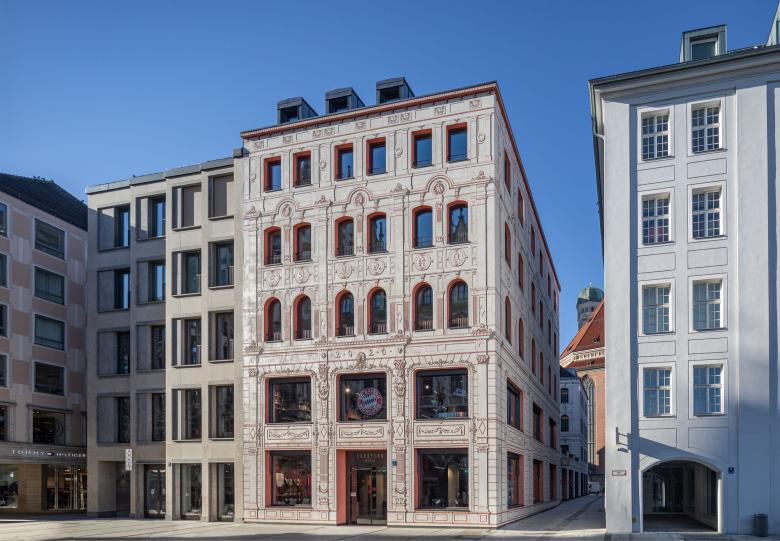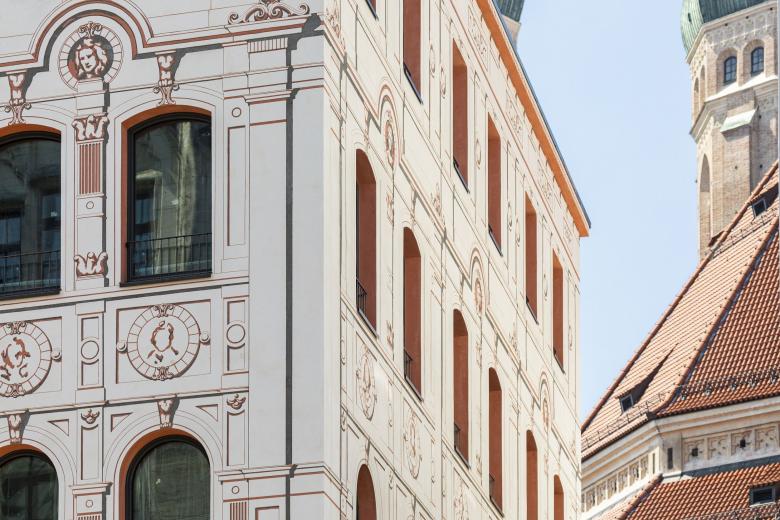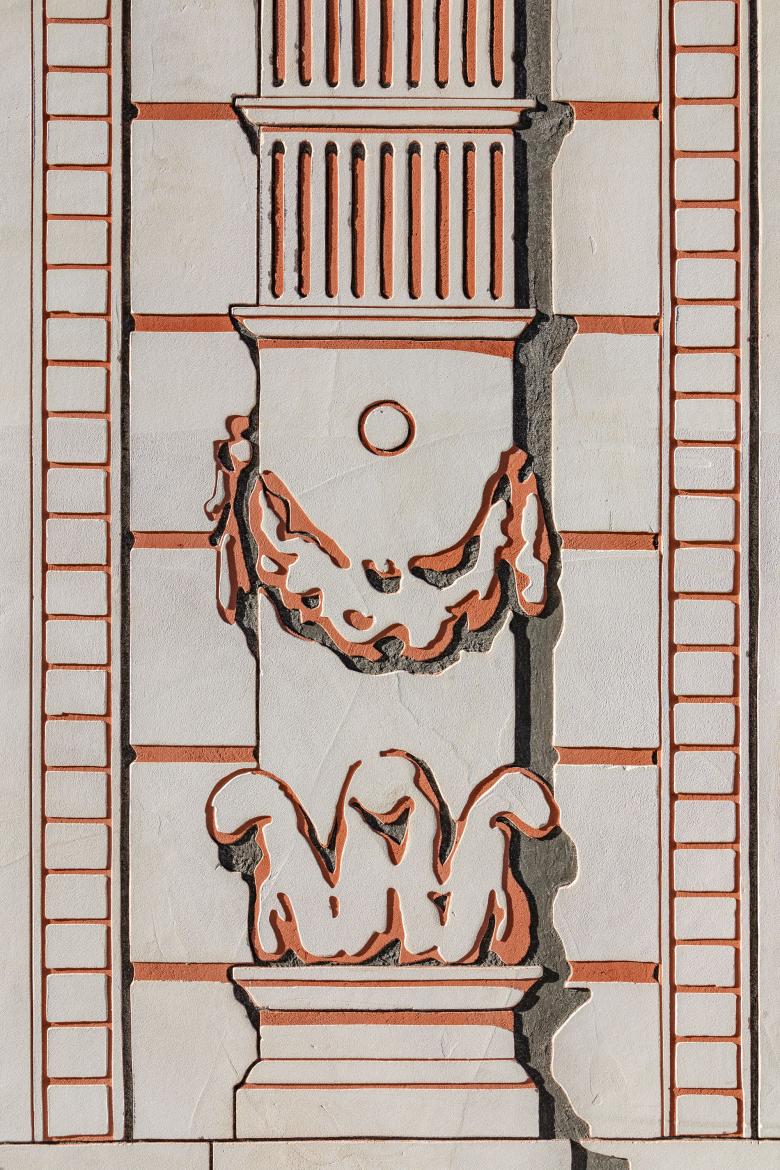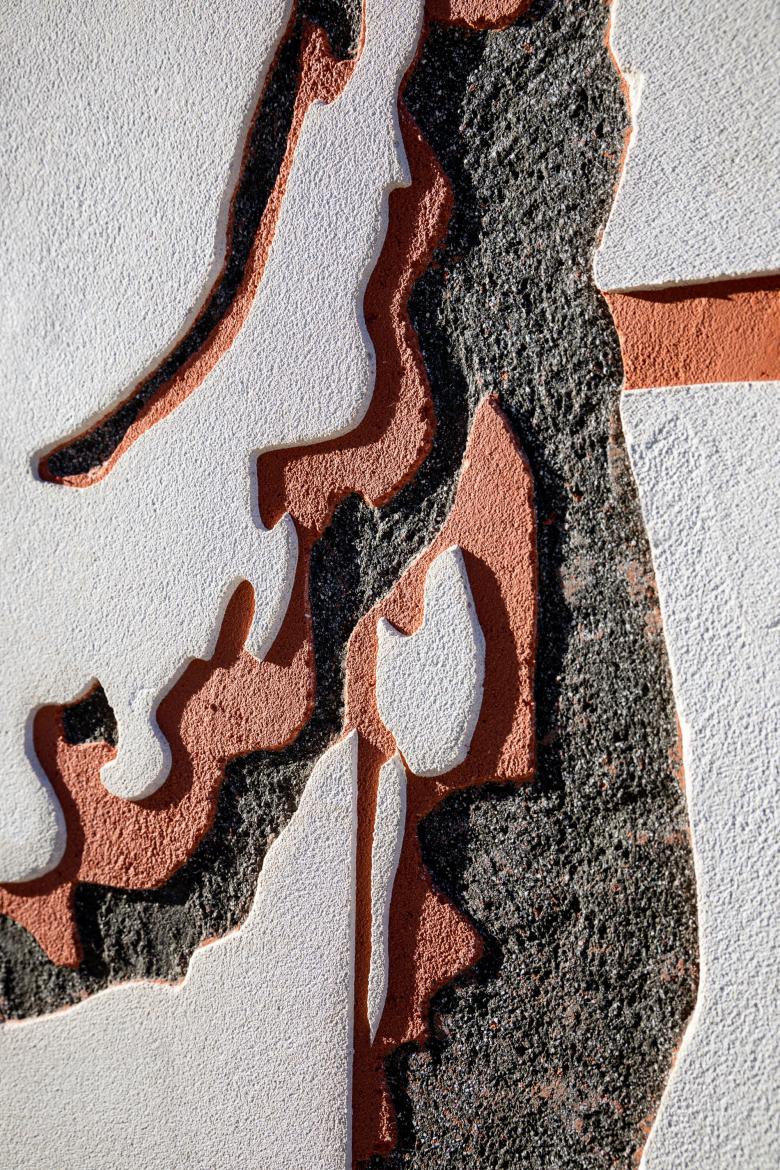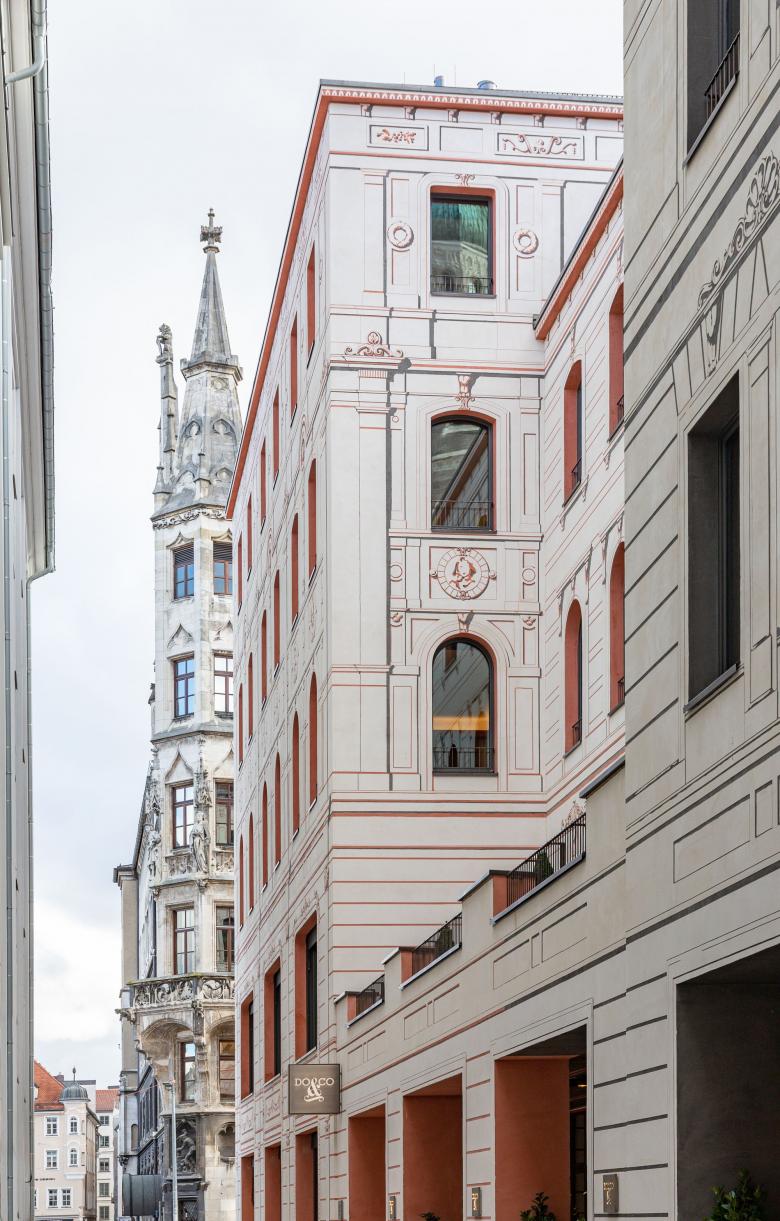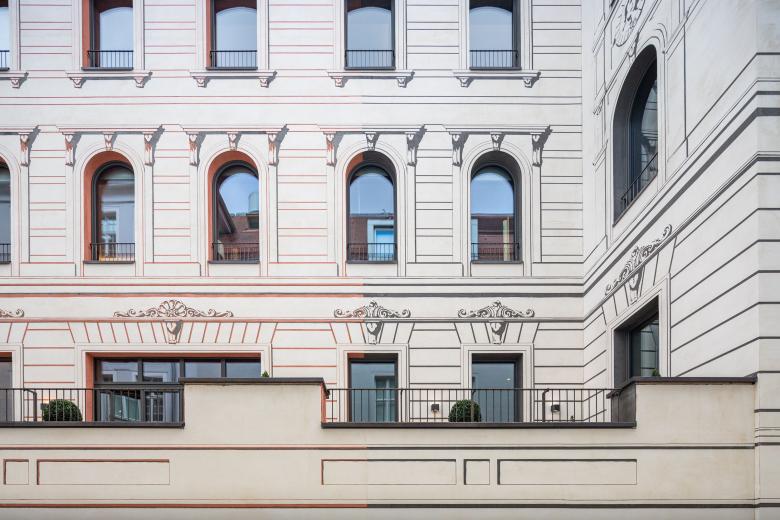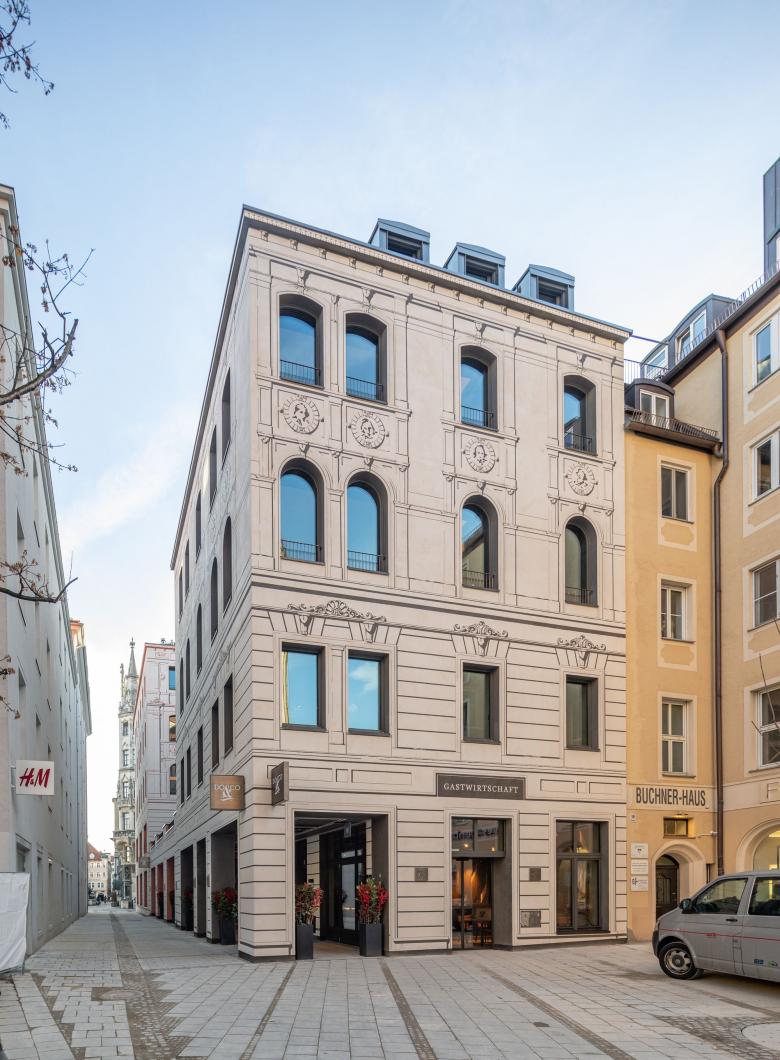Geschäftshaus mit Hotel und Restauration in der Weinstrasse 7/7a
Munich, Germany
- Architects
- Hild und K
- Location
- Weinstraße 7/7a, 80333 Munich, Germany
- Year
- 2020
- Client
- Nymphenburg Immobilien AG
- Team
- Hild und K Architekten Andreas Hild, Dionys Ottl, Matthias Haber, in Zusammenarbeit mit Architekturbüro Thomas Hetfleisch & Joachim Leppert; Projektleitung: Markus Schubert
The building plot on which the six-storey commercial building with hotel and restaurant was built on behalf of Nymphenburg Immobilien GmbH is located in the middle of Munich’s old town. The location is characterised by the architecture of the so-called Wiederaufbau (post-war reconstruction era). In 1945, the city authorities decided to rebuild the largely destroyed city centre in the style of traditional architecture. In addition to the preservation and reconstruction of historical building components, there was a conscious convergence of modern and traditional elements in many places. The façade by Andreas Hild, Dionys Ottl and Matthias Haber is also in keeping with this spirit. They link the memory of the glamorous pre-war period with a technique of this reconstruction era to create a contemporary ensemble.
The design reflected a historical drawing of the house that stood on the specific site until it was destroyed in the war. Its implementation, however, is not a reconstruction but an interpretation of the drawing within a sgraffito. This multi-layered rendering technique was also often used in Munich in the 1950s to design façades and fit them into their historical context. An example can be found on the rear of the immediately neighbouring „New Town Hall“. A more extensive façade design was used at the department store „Beck am Rathauseck“ which is also close by. Here, the classic colours (brick) red and (lime) grey can also be found. Like the (soot) black often used elsewhere, they owe their historical prominence to the specific aggregates that were added to the render. By revisiting these traditional sgraffito colours, the new building enters into dialogue with the bricks of Munich Cathedral and the shell limestone façade of Munich City Hall. Situated on the visual axis between these two iconic buildings, it adapts to the respective perspective. Thus, the back of the building is reduced to two stone-grey tones, while the front brings another red layer into play.
In Filserbräugasse, where the black and white changes to colour, was once the boundary between the two plots of post-war development. The current building area is modelled on the pre-war building, the destruction of which and its subsequent reconstruction history are at the same time thematised in the colour scheme. Old and new are also combined in the technique used to create the façade ornamentation. The name “sgrafitto“ is derived from the Italian „sgraffiare“, „to scratch“. Traditionally, different coloured layers of plaster are applied on top of each other and then partially „scratched off“ again. The implementation concept developed together with the company Restauro Putz GmbH Arte Antica enriches this traditional craft with contemporary means. First, the original drawing on which the ornament is based was transferred to „life size“ on the computer by illustrator Sarah Nonnenmacher. Stencils were made accordingly, which were applied to the render just before the final coat was applied and removed again during the drying process. In the three-colour relief, the deepest, anthracite-coloured areas were also carved out in the traditional method and according to a pre-drawn design on the façade.
Related Projects
Magazine
-
Winners of the 5th Simon Architecture Prize
4 days ago
-
2024, The Year in …
5 days ago
-
Raising the (White) Bar
6 days ago
-
Architects Building Laws
1 week ago
